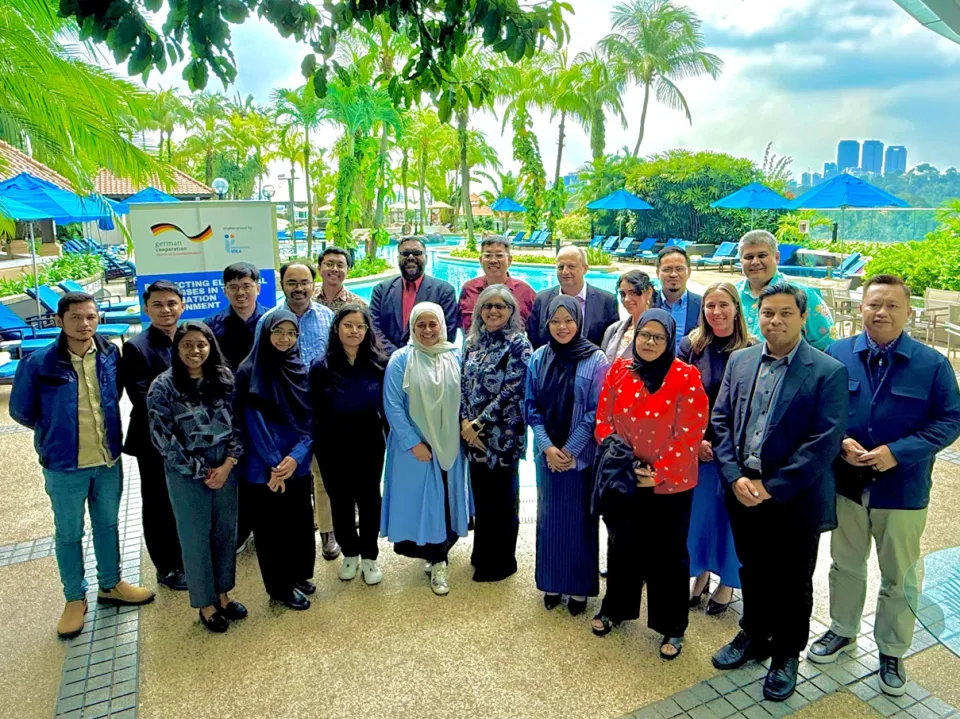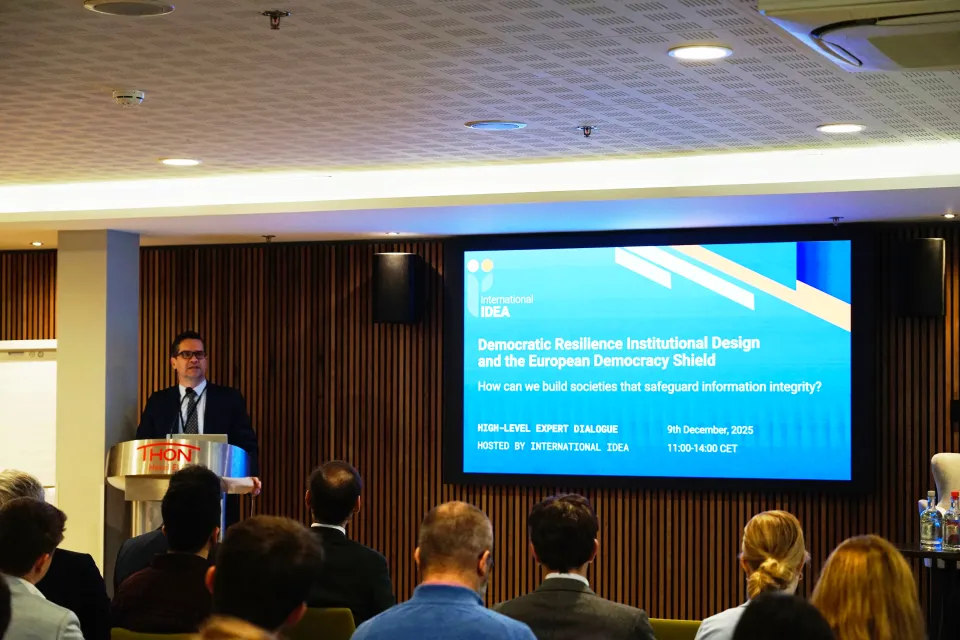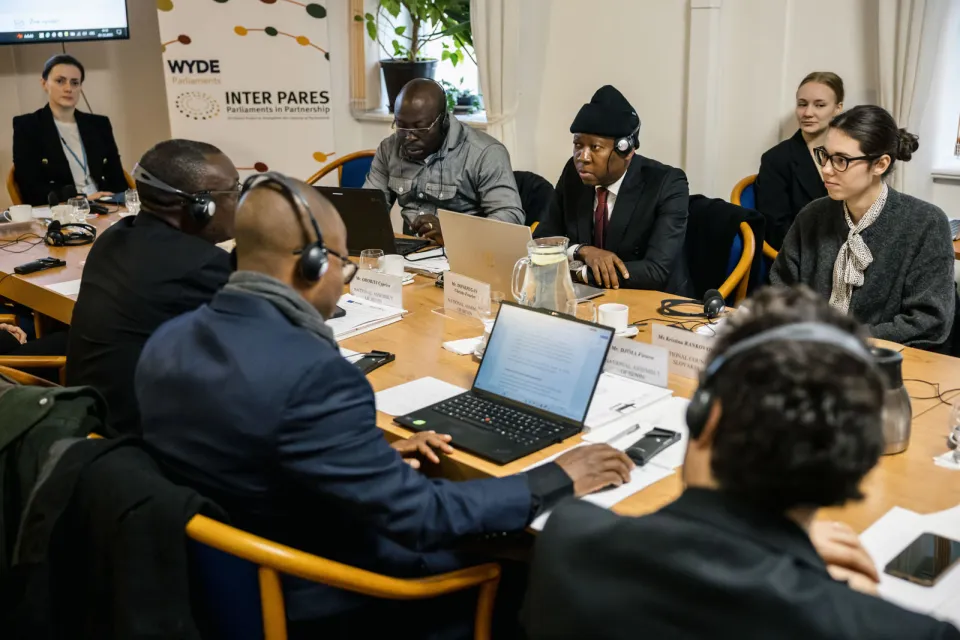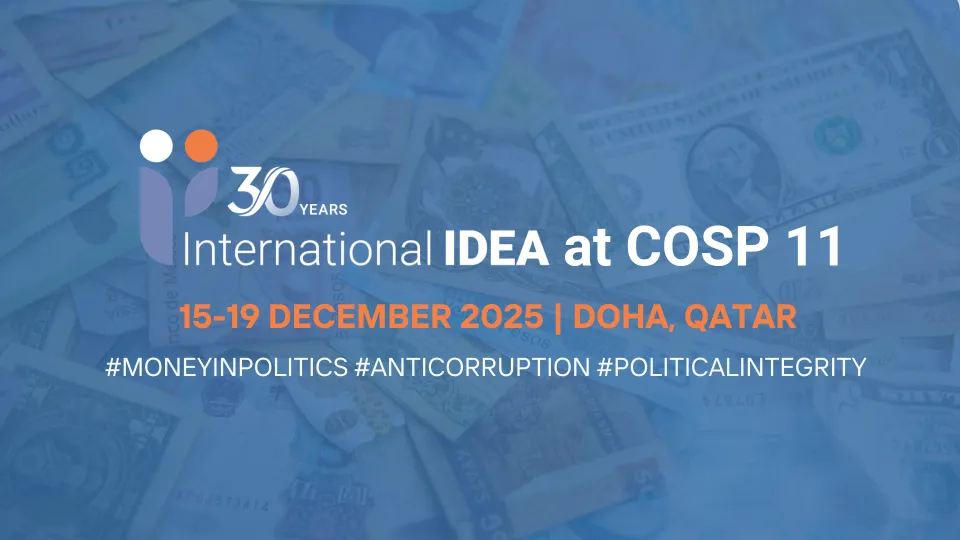Good Governance, Democracy and Accountability – International IDEA’s Key Messages for the Post-2015 Sustainable Development Agenda
Sustainable development is like a four-legged chair: one needs all four legs of development–economic, social, environmental and governance–in order for it to function. Removing any one leg of the chair renders it inoperable. These words from International IDEA’s Secretary-General Yves Leterme succinctly sum up the position of International IDEA as the post-2015 agenda becomes ever more pressing.
The event, “Good Governance, Democracy and the Rule of Law in the Post-2015 Development Agenda” was held during the week of the UN General Assembly, in which world leaders tackled the theme, “Delivering on and implementing a Transformative Post-2015 Development Agenda.” Ministers of foreign affairs and heads of international organizations alike spoke to an at-capacity room on the necessity of democratic governance and accountability in the UN post-2015 sustainable development agenda.
International IDEA Secretary-General Yves Leterme went on to state thatgovernance is more than just building institutions; it is about empowering people to engage with decision makers and hold institutions to account. This was also emphasized by UN Deputy Secretary-General Jan Eliasson. Other panelists agreed, citing a reciprocal need for both a bottom-up approach at the level of citizen empowerment and top-down action on delivering access to justice, participation and use of land rights.
Norway’s Minister of Foreign Affairs, Børge Brende echoed this reciprocal approach, calling for an agenda that mobilizes civil society and public opinion while also stressing the importance of the respect of human rights at all levels in its implementation. It is important to note that in the World We Want 2015 survey, in which more than a million people globally participated, a responsive and honest government ranked fourth of all possible factors.
Panelists agreed that democratic accountability is of the utmost importance in implementing this new agenda. It allows citizens to participate while bringing social and financial stability.
As Assistant Secretary-General for Post-2015 Development Planning Amina Mohammed stated, now is the time for the global community to come to a common understanding of democracy, one that acknowledges that it evolves and shifts emphasis in different national circumstances, while maintaining the importance of the checks and balances of democratic institutions.
The UN Open Working Group’s outcome document on the sustainable development goals detailed two goals of utmost importance for this event: Goal 16 on peaceful and inclusive societies, access to justice and accountable institutions and Goal 17 on means of implementation and global partnership.
View the recorded video of the high-level side event.

Pictured from left to right: Raghida Dergham, Senior Diplomatic Correspondent, Al-Hayat; Yves Leterme, Secretary-General, International Institute for Democracy and Electoral Assistance; H.E. Mr. Børge Brende, Minister of Foreign Affairs, Norway; Jan Eliasson, Deputy Secretary-General of the United Nations; H.E. The Hon. Phandu Skelemani, Minister of Foreign Affairs; Irene Khan, Director-General, International Development Law Organization; and Amina Mohammed, Assistant Secretary-General for Post-2015 Development Planning, United Nations.



